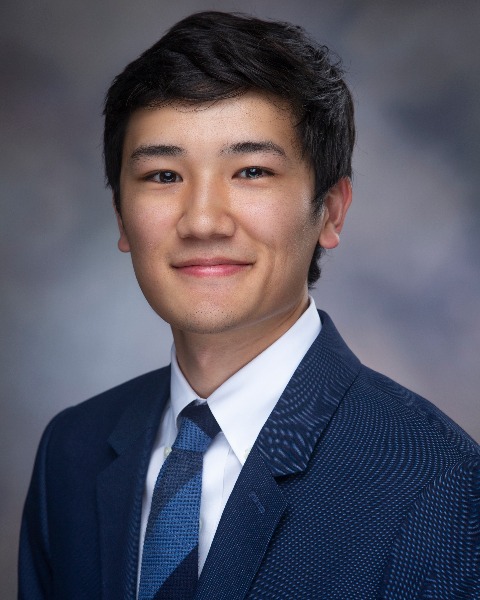Back
Poster Session A - Sunday Afternoon
A0461 - A Pilot Study to Improve Resident Paracentesis Training and Reduce Paracentesis Delay in Admitted Patients With Cirrhosis
Sunday, October 23, 2022
5:00 PM – 7:00 PM ET
Location: Crown Ballroom

Codey Pham, MD
Baylor College of Medicine
Houston, TX
Presenting Author(s)
Codey Pham, MD, Anthony Xu, MD, Milena Gould Suaez, MD, FACG
Baylor College of Medicine, Houston, TX
Introduction: Individuals with decompensated cirrhosis are at high risk of hospitalization and readmission yet there are significant gaps in care. There is evidence for obtaining a diagnostic paracentesis in all admitted patients with cirrhosis and ascites. Delayed paracentesis for those with SBP is associated with increased mortality. There is often a delay in performing paracentesis at our institution. The lack of resident paracentesis experience, reflected by our programs average of 1.24 paracentesis performed per resident per year, often leads to outsourcing to interventionalists and delay in care. We implemented a pilot study to increase resident experience in performing paracenteses to improve time to paracentesis for admitted patients with cirrhosis.
Methods: We implemented a pilot quality improvement project over five noncontiguous months at an academic county hospital. The primary endpoint was procedural competency (defined as performing at least five paracentesis) by residents rotating on the inpatient gastroenterology (GI) service for more than one week. Secondary endpoints were assessing the clinical outcomes of paracentesis and reduction in time to paracentesis. The intervention was 1) providing educational material to the resident outlining the logistical and procedural steps to perform a paracentesis and 2) supervising the resident performing the procedure. Competency rates, estimated time delay if performed by a separate interventionalist, and paracentesis findings were recorded.
Results: In five months, five residents rotated on the GI service. 11 paracenteses were performed. No residents were demonstrated competency prior to the rotation and 4 (80%) demonstrated competency by the end. The estimated additional delay was 33 hours per paracentesis (range of 17-69 hours) if the paracentesis were done by a separate interventionalist. Nine paracenteses showed portal hypertension without SBP, one with SBP, and one was due to malignant ascites.
Discussion: A major barrier to timely paracentesis in our residency is a deficit in procedural training. Many residents are unable to perform paracentesis on their own which leads to deferral of the procedure and delay in care. This pilot study showed that integrating paracentesis training of residents into their GI rotation can reduce the delay in paracentesis and increase resident competency. More data is required to show the long-term benefit on paracentesis rates, delay in paracentesis and the viability of such a model in other institutions.
Disclosures:
Codey Pham, MD, Anthony Xu, MD, Milena Gould Suaez, MD, FACG. A0461 - A Pilot Study to Improve Resident Paracentesis Training and Reduce Paracentesis Delay in Admitted Patients With Cirrhosis, ACG 2022 Annual Scientific Meeting Abstracts. Charlotte, NC: American College of Gastroenterology.
Baylor College of Medicine, Houston, TX
Introduction: Individuals with decompensated cirrhosis are at high risk of hospitalization and readmission yet there are significant gaps in care. There is evidence for obtaining a diagnostic paracentesis in all admitted patients with cirrhosis and ascites. Delayed paracentesis for those with SBP is associated with increased mortality. There is often a delay in performing paracentesis at our institution. The lack of resident paracentesis experience, reflected by our programs average of 1.24 paracentesis performed per resident per year, often leads to outsourcing to interventionalists and delay in care. We implemented a pilot study to increase resident experience in performing paracenteses to improve time to paracentesis for admitted patients with cirrhosis.
Methods: We implemented a pilot quality improvement project over five noncontiguous months at an academic county hospital. The primary endpoint was procedural competency (defined as performing at least five paracentesis) by residents rotating on the inpatient gastroenterology (GI) service for more than one week. Secondary endpoints were assessing the clinical outcomes of paracentesis and reduction in time to paracentesis. The intervention was 1) providing educational material to the resident outlining the logistical and procedural steps to perform a paracentesis and 2) supervising the resident performing the procedure. Competency rates, estimated time delay if performed by a separate interventionalist, and paracentesis findings were recorded.
Results: In five months, five residents rotated on the GI service. 11 paracenteses were performed. No residents were demonstrated competency prior to the rotation and 4 (80%) demonstrated competency by the end. The estimated additional delay was 33 hours per paracentesis (range of 17-69 hours) if the paracentesis were done by a separate interventionalist. Nine paracenteses showed portal hypertension without SBP, one with SBP, and one was due to malignant ascites.
Discussion: A major barrier to timely paracentesis in our residency is a deficit in procedural training. Many residents are unable to perform paracentesis on their own which leads to deferral of the procedure and delay in care. This pilot study showed that integrating paracentesis training of residents into their GI rotation can reduce the delay in paracentesis and increase resident competency. More data is required to show the long-term benefit on paracentesis rates, delay in paracentesis and the viability of such a model in other institutions.
Disclosures:
Codey Pham indicated no relevant financial relationships.
Anthony Xu indicated no relevant financial relationships.
Milena Gould Suaez indicated no relevant financial relationships.
Codey Pham, MD, Anthony Xu, MD, Milena Gould Suaez, MD, FACG. A0461 - A Pilot Study to Improve Resident Paracentesis Training and Reduce Paracentesis Delay in Admitted Patients With Cirrhosis, ACG 2022 Annual Scientific Meeting Abstracts. Charlotte, NC: American College of Gastroenterology.
